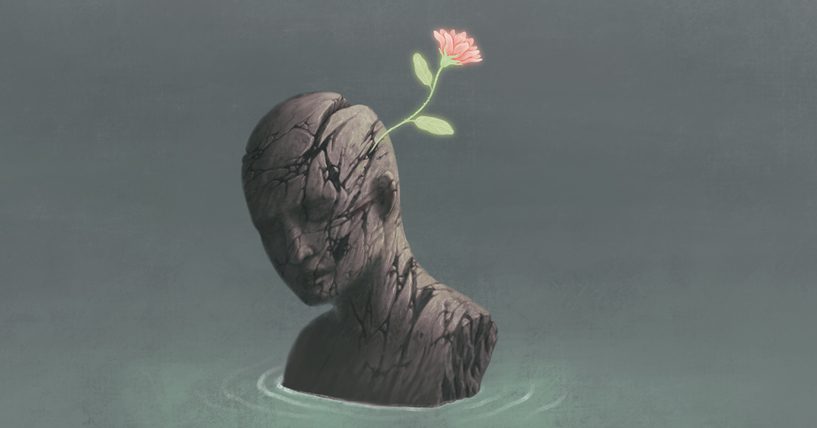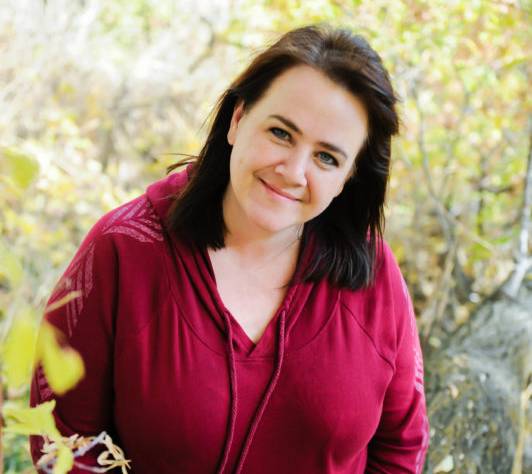Grief is a natural human response to loss. It is not a single emotion but a constellation of emotions and physiological experiences. As such, it is not easily defined or categorized. But for most of us, grief is dominated by overwhelming sadness, fear, anxiety, despair, hopelessness. We can feel tormented by guilt, regret and even shame. Grief can become complicated by feelings of gratitude, strength and love. It can be difficult to know how to process so many conflicting thoughts and emotions. Grief turns everything on its head. Important things suddenly seem trivial. What used to bring us joy, has been transformed into a source of pain. Happiness and laughter are avoided instead of pursued. Lighthearted feelings can seem wrong and inappropriate and the heavy emotions can feel like the necessary price we should eternally pay for loving someone deeply. We have a picture in our minds of what grieving is supposed to look like, how long it should last and how others should treat us. When it comes to grief things usually don’t turn out according to our expectations.
When working with grief, it is important to separate loss from grieving. Loss is the devastating event that has happened to us. Grief is the river that carries us through every channel of that loss and eventually delivers us to a new shore. Grief for me, has been like a guide, who takes me on a journey for which there is no return. A journey I didn’t necessarily choose to take but have been thrust upon regardless. Accepting that I have no control over the event is one of the hardest adjustments of grieving. Once I accept that I am in the river of grief, and that river is inevitably moving toward a new self, a new way of being in the world, the pain eases up some. But getting to that degree of acceptance can take time and work. The most normal reaction to loss and the ensuing grief is to cling to every possible tree root or stone along the shore. To save ourselves from the raging river. We want desperately to stay near our experience, no matter how painful, for fear of losing even more. We are being pulled in one direction by grief and trapped in the opposite direction by the loss itself. But the river of grief is necessary for our survival. Grief encourages us to let go and move forward so that we don’t become stuck in the pain of that loss, forever watching the river but never allowing it to do its work.
It is natural to want to run from pain, sorrow and fear but training yourself to move closer to it, allows you to have more control over your response to it. Grief opens deep doors that are usually kept closed. It shows us our most hidden self. It guides us to our darkest cave and asks us to shine our light there. Grief reminds us of what is important and accentuates all that we truly cherish. It highlights our relationships, our love, our connections and our humanity. It shines a spotlight on what might otherwise be overlooked.
Grief touches every part of our lives. It changes us at a fundamental level. It is like all our familiar parts, our very identity has been disassembled, torn apart and broken. We may find new parts are available to us as well as realizing some parts are not recoverable at all. We can never be who we were before. But we can pick up the pieces and decide how we will be reassembled. There is power in that choice.
There are as many ways to grieve as there are human beings. Each person has a unique relationship to loss and will grieve according to his or her own set of values, personality and culture. Give yourself permission to grieve in your own way. I have found it helpful to chart my grief course. To name the ups and downs and give voice to the complexity of the experience. In doing so, I make a map of where I have been and of the many truths that loss and grief have offered me. The more I understand my own grief the less afraid I am of grieving. The more I examine my own loss, the less frightening that loss feels.
Some questions for working with grief:
- Take a moment and notice if you are grieving right now, what does this moment of grief highlight for you? What is standing directly in the spotlight?
- What does grief feel like in your physical body? Have your normal functions changed? If so, how? (i.e. sleeping, eating, conversing, work/job, energy, mental focus and so on.)
- What are you most afraid of right now?
- What is the darkest part of your grief? How close have you been to it?
- If grief was a person what would your relationship look like?
- Are there emotions that have surprised you? Are there thoughts that have shamed you?
- Some of us repress our grief, pushing it down and avoiding dealing with it directly. Others indulge in the grief to the point of losing themselves in it, drowning in the river instead of flowing with it. What does repressing grief feel like in your body? Conversely, how do you know if you are drowning? What improves your experience of either one of these?
- What kind of judgments do you feel toward yourself during your grieving process? Can you name them and examine those judgments? What about judgments toward others?
I invite you to come up with your own questions that help you examine your grief in a way that makes sense for you. And know that when you reach the other shore, when your grief has carried you all the way, you will be able to say, I have been there. I know the path, the pain, the struggle and the despair. I have survived it and can never be truly afraid of it again.

